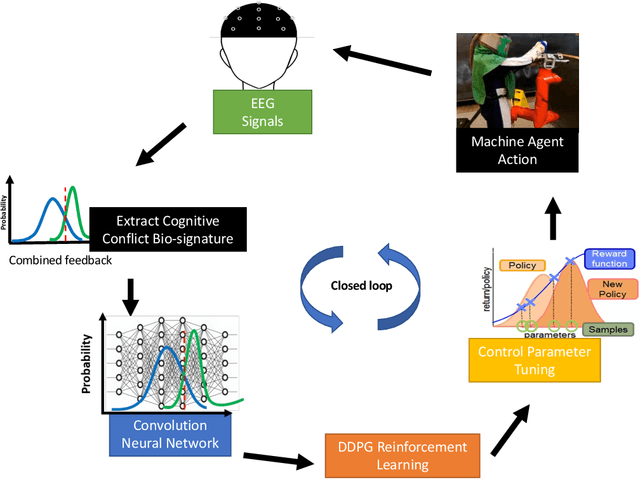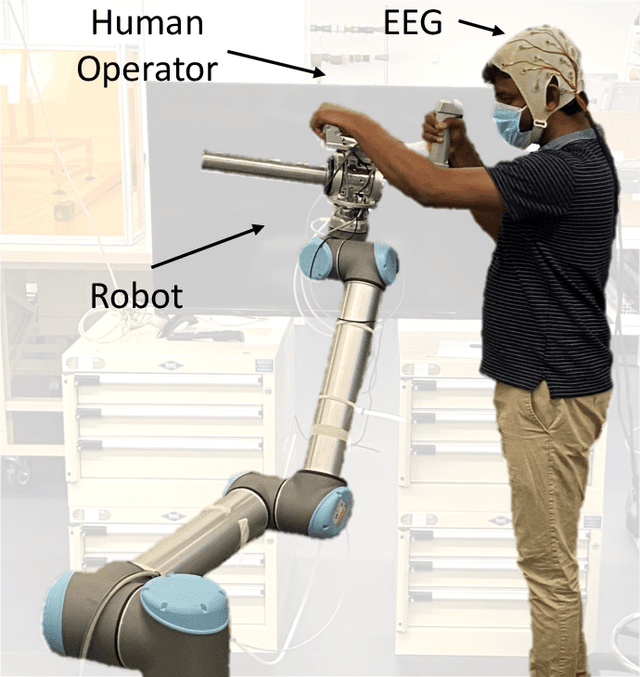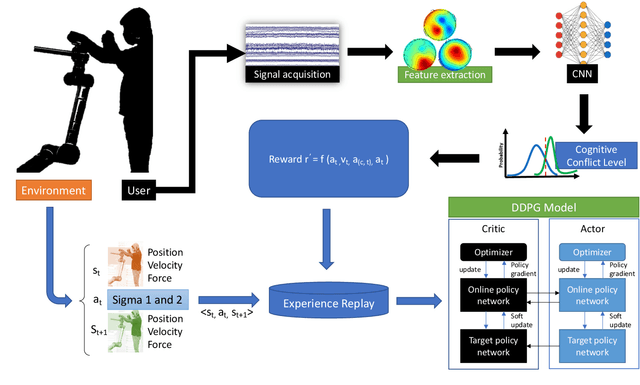Neuroadaptation in Physical Human-Robot Collaboration
Paper and Code
Sep 30, 2023



Robots for physical Human-Robot Collaboration (pHRC) systems need to change their behavior and how they operate in consideration of several factors, such as the performance and intention of a human co-worker and the capabilities of different human-co-workers in collision avoidance and singularity of the robot operation. As the system's admittance becomes variable throughout the workspace, a potential solution is to tune the interaction forces and control the parameters based on the operator's requirements. To overcome this issue, we have demonstrated a novel closed-loop-neuroadaptive framework for pHRC. We have applied cognitive conflict information in a closed-loop manner, with the help of reinforcement learning, to adapt to robot strategy and compare this with open-loop settings. The experiment results show that the closed-loop-based neuroadaptive framework successfully reduces the level of cognitive conflict during pHRC, consequently increasing the smoothness and intuitiveness of human-robot collaboration. These results suggest the feasibility of a neuroadaptive approach for future pHRC control systems through electroencephalogram (EEG) signals.
 Add to Chrome
Add to Chrome Add to Firefox
Add to Firefox Add to Edge
Add to Edge